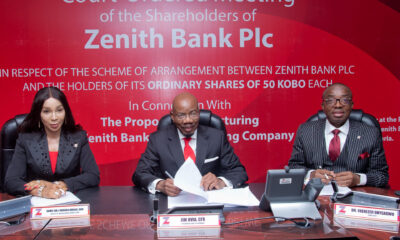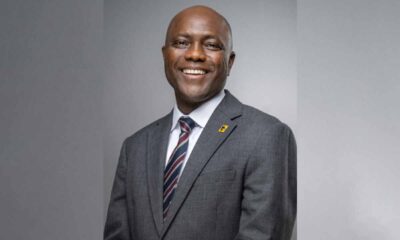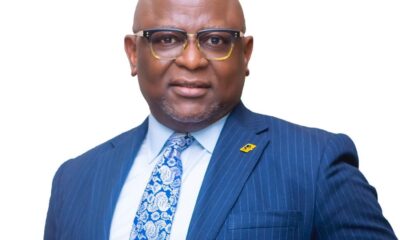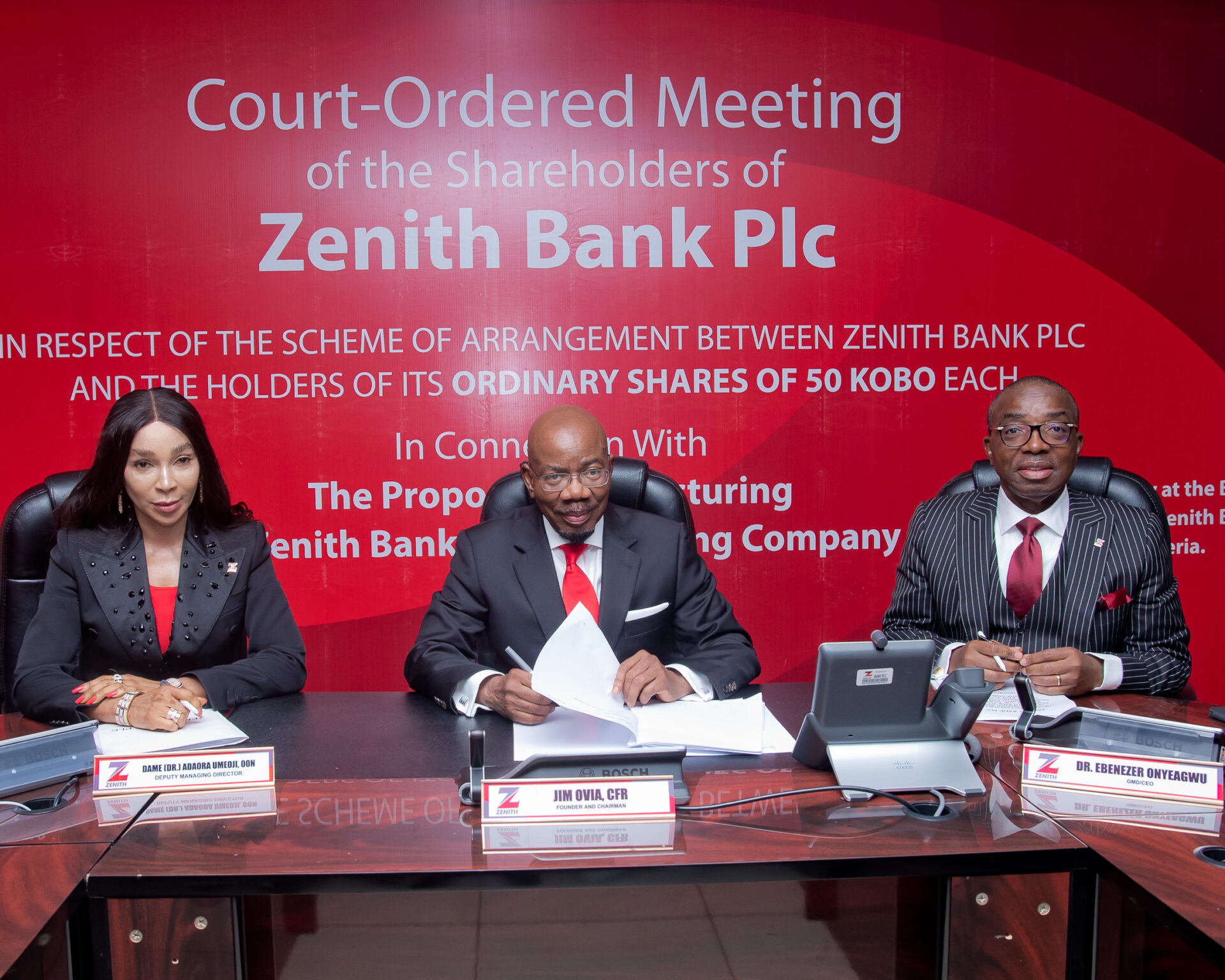Dazzles stakeholders with growth across key metrics
Rising from a lower profit margin of N10.2billion and a debilitating Non-Performing Loan portfolio of 45 per cent in 2015, to an impressive profit of N147billion and a significantly lowered NPL rate of 5.6 per cent in 2022, FirstBank has proven that its back-to-back profit-making is far beyond recoveries made, but rather it’s a reinforcement of a well-articulated growth trajectory driven by a committed, competent and experienced Board and management team, writes Festus Akanbi
There seems to be a consensus among watchers of the Nigerian banking sector that these days, the changing dynamics foisted on the nation’s economy by both the current local and international economic realities are already taking their toll on Nigerian banks.
As the nation’s population rises, so also the need for banking services by the people. However, the rise in population and the corresponding rise in the number of unbanked and underbanked Nigerians are creating a new dimension of competition among banks in the country.
Therefore, as competition for the sphere of influence becomes fierce, analysts said only banks with a track record of consistent preparation for emerging challenges will stand the test of time, especially in a period of regime change with its attendant restructuring in the Nigerian economic policies.
FirstBank Returns with Solid Fundamentals
Top on the list of banks in this category is FirstBank Limited, a subsidiary of FBN Holdings Plc. This is because, from whatever angle one looks at its performance trajectory, especially in the last seven years, what is constant is the sustained growth in its deliveries coupled with its stabilisation and return to the top of the ladder of the Nigerian banking industry.
The bank has over the years taken some far-reaching decisions, which observers said have created a new benchmark in the Nigerian banking industry, especially with its triumphant return to solid profitability within a period of seven years.
For example, in its full-year results for 2022, the bank was been able to record tremendous improvements in all performance metrics surveyed by our correspondent. It grew the number of total customer accounts from 10 million in 2015 to 41 million customer accounts as of December 2022. Its total number of issued cards rose from seven million in 2015 to 12 million last year.
Also within a spate of seven years, the number of its FirstMobile users rose to 6.1 million, while the number of FirstOnline users was put at 1.1 million in 2022. Its USSD users were said to have hit 14.7 million while the number of its total digital banking customers rose from 600,000 in 2015 to 22 million in 2022.
Agent Banking
In the same category is the bank’s agent banking business where FirstMonie agent banking is reaching out to customers in unbanked or underbanked regions to process financial requests through registered agents. This was non-existent in 2015, but by 2022, the bank could boast of 200,000 direct agents in all the crannies of the country. Analysts are quick to remind us that if we factor in the fact that most of the agent bankers usually employ about two additional staff, what it means is that FirstBank has empowered about 600,000 people.
Performance Indicators
To show for its policy consistency, innovation and its recovery measures since 2015, a comparative analysis of the performance indicators in the bank’s statement of account between the 2015 and 2022 figures confirmed analysts’ vote of confidence in the board and management of FirstBank.
For instance, the bank has significantly grown its customer deposit from N2.905 billion in 2015 to N7.351 billion in 2022. Its total assets rose from N3.973 billion in 2015 to N10.605 billion in 2022.
It improved on its profit before tax of N10.2 billion in 2015 which grew to N147.3 billion last year. Other metrics include a major improvement in the bank’s pretax return on equity from 0.6 per cent in 2015 to 17.3 per cent in 2022, while its pretax return on asset moved from 0.1 per cent to 1.6per cent. The bank also recorded an appreciable reduction in the cost of funds from 3.6 per cent in 2015 to 2.1 per cent in 2022.
Lower Rate of Non-Performing Loans
However, one major development is the ability of the bank’s leadership to free the institution from the burden of non-performing loans which trended down from 45 per cent in 2015 to 5.6 per cent in 2022.
In response to the ongoing turnaround of the bank initiated in 2015, the latest performance figures showed that the African subsidiaries of the bank have shed their negative position of 2015 to profitability and they indeed contributed 21.3 per cent of its PBT for the year under review.
Perhaps, the most visible indication that FirstBank has returned to profitability is the quantum jump in its share price which moved from N4.88 to N14.17.
First Bank’s Laudable Firsts
Industry watchers said the bank’s return to solid profitability can also be assessed in terms of its areas of concentration as a growing concern.
It’s on record that FirstBank has many records of being the first. It was the first financial institution to be established in West Africa; the first Nigerian company to emerge Most Valuable Banking Brand in Nigeria for six consecutive years in the globally renowned brand Finance Surveys and the first Nigerian bank to surpass 200,000 agent banking locations as an exceptional financial inclusion pioneer.
Other pioneering records include its emergence as the first bank to reach N1trillion ((US$8 billion) market capitalisation on the Nigerian Stock Exchange (NSE); the first financial institution to engage in a N100 billion (US$800 million) hybrid offer that marked the largest public offer on the Nigerian capital market and the first Nigerian bank to establish an off-shore subsidiary – FirstBank UK Ltd.
Unique Products’ Offerings
The bank is also reputed as the first financial institution to support a centre on Sustainability in partnership with the Lagos Business School.
Then referred to as the FirstBank Sustainability Centre, it was used as a case study for global best practice in terms of “Partnerships with Business Schools to Advance Sustainability (Ideas that Inspire Action)” championed by the Principles for Management Education (PRME) and the United Nations Global Compact LEAD. It’s the commitment to advancing Environmental Social and Governance (ESG) that earned the Bank several awards including the Market Leader Nigeria (ESG) by Euromoney Market Leaders 2022.
Q1, 2023 Results
Expectedly, the bank has continued to receive impressive ratings ever since its first quarter 2023 result was made public, with analysts saying the transformation has further confirmed the claim of its management that it has rebuilt FirstBank with solid fundamentals.
For instance, gross earnings recorded a substantial increase of 44.2 per cent year-on-year, while its net interest income saw a remarkable surge of 50.9 per cent year-on-year on the back of optimal asset pricing and effective management of interest-earning assets.
Speaking on the results, the Chief Executive Officer, Dr. Adesola Adeduntan disclosed that increasing penetration of digital and transaction banking offerings supported the bank’s Q1 performance in non-interest income by 15.3 per cent growth, adding that “The increase of 21 per cent year-on-year in operating expense reflects the high inflationary environment but within revenue growth. Overall, the Commercial Banking Group delivered substantial growth of 57 per cent and 54.8 per cent in profit before tax and profit after tax, respectively, for the quarter.”
The Making of a Transaction-led Institution
Another game-changer in the story of the transformation of FirstBank was the conscious attempt of the board and management to make the bank a transaction-led institution.
Analysts said the feat was achievable because of the commitment of the bank’s management to invest and deploy technology to the fullest.
For instance, FirstBank is the first to begin the Technology Academy in Nigeria and this has helped the bank to build a transaction-led “machine” -a digital infrastructure that can accommodate huge transactions. Today, the bank has been able to grow its customer accounts to 42 million-as against the 10 million it recorded in 2015, while it has over 22 million active customers on its digital channels.
Adeduntan explained further that “In cleaning up the bank, there was no additional fund injection, which is the most dramatic thing. That means we have been able to achieve all these without shareholders losing their business. What happened was that we did our own AMCON by cleaning our books ourselves without any external capital injection.
Human Resources
Realising the pivotal role of its employees, the bank decided to invest in its staff while it sought external assistance on areas it couldn’t address locally. Thisday gathered that the bank liaised with international institutions like Standard Chartered; Citibank and JP Morgan.
The bank also has a structured succession plan having initiated a development plan in 2015 that allows most if not all the vacancies in the bank to be filled internally.
The bank also put in place a Senior Management Development Programme (SMDP), which is an intensive modular programme for a select group of senior managers to principal managers who are proven leaders in their respective functions and have been identified as central to the Bank’s succession plan.
Other initiatives include the Leadership Acceleration Programme (LAP), which was specifically designed to develop and infuse critical leadership and change agents within the middle management staff cadre of the Bank. The list also includes First Bank Management Associate Programme, a 24-month fast-track comprehensive programme targeted at young, dynamic and highly driven individuals that are passionate about making a difference in the financial services industry. The programme is designed to build the next generation of leaders to drive the Bank’s vision of being Africa’s Bank of First Choice.
FirstBank’s Performance Indicators (2015 Versus 2022)
Dec 2015 Q1 2023/ Dec 2022*
| Number of Total Customers Accounts1 [millions] |
10.9 |
41 |
| Total Number of Issued Cards [millions] |
7 |
12.0 |
| FirstMobile Users [millions] |
0.06 |
6.1 |
| FirstOnline Users [millions] |
0.09 |
1.1 |
| USSD Users [millions |
0.5 |
14.7 |
| Total Digital Banking Customers Users [millions |
0.6 |
22.0 |
| Annual Transaction Volumes [millions] |
2,000 |
17,000 |
| Number of Agents |
0 |
200,000 |
| % of Customer Induced Transaction Processed on Digital Platforms |
20% |
96% |
| Transaction Momentum (Non- Interest Income as a % of Net Revenue |
22.7% |
40.59% |
| Number of Total Customers Accounts1 [millions] |
10.9 |
41 |
| Transaction Banking Platform Users |
0 |
1,476 |


 Forex4 weeks ago
Forex4 weeks ago
 Naira3 weeks ago
Naira3 weeks ago
 Billionaire Watch3 weeks ago
Billionaire Watch3 weeks ago




 Naira3 weeks ago
Naira3 weeks ago








 Naira3 weeks ago
Naira3 weeks ago


 Naira2 weeks ago
Naira2 weeks ago








 Naira2 weeks ago
Naira2 weeks ago








 Naira4 weeks ago
Naira4 weeks ago























